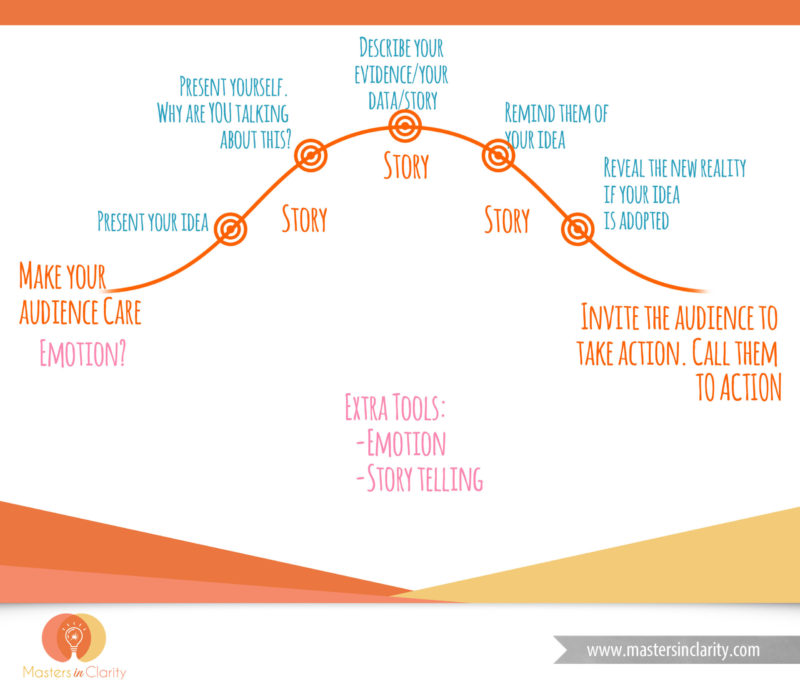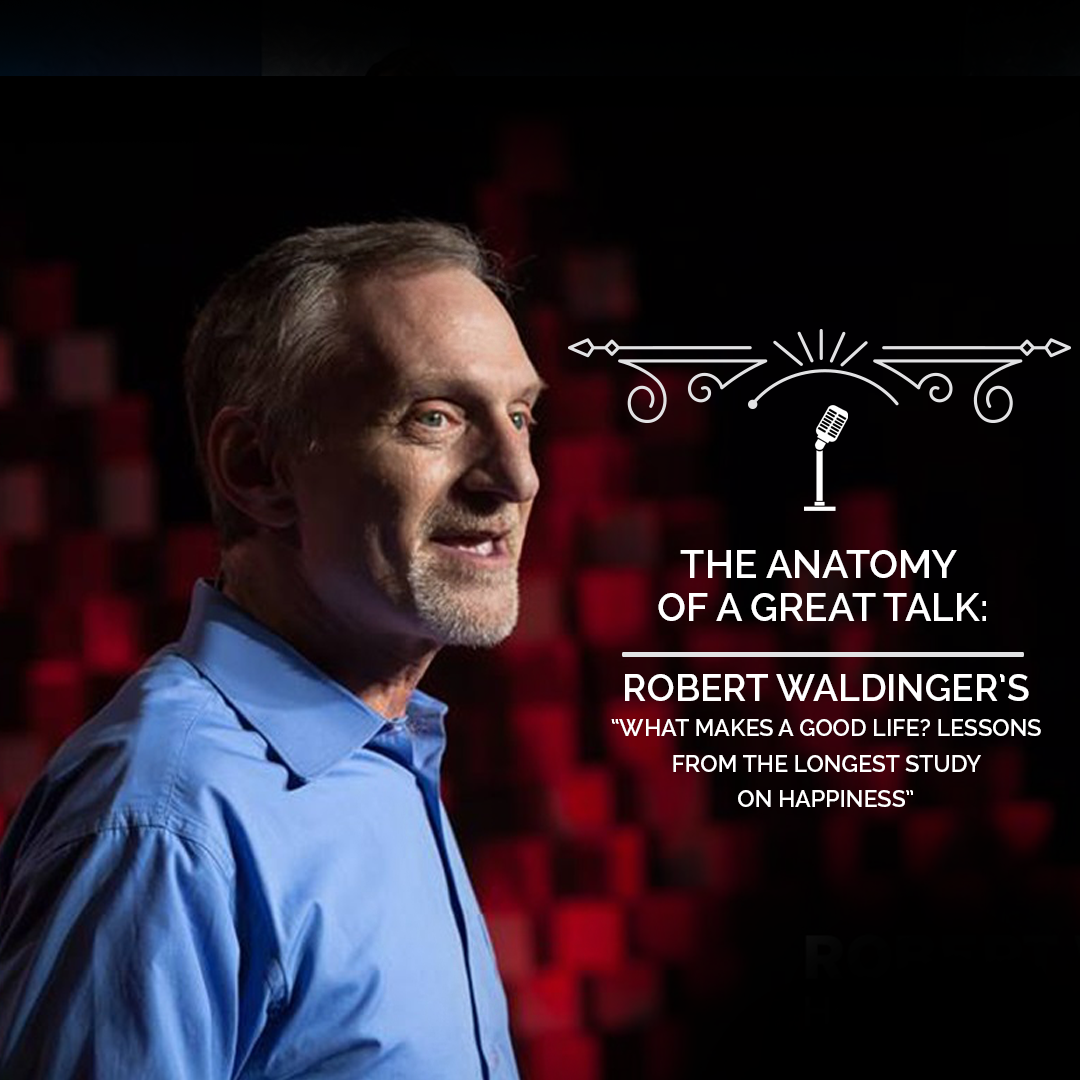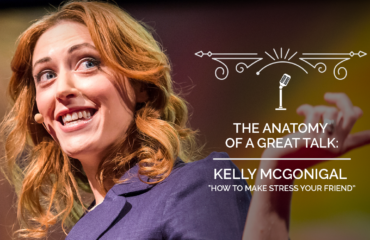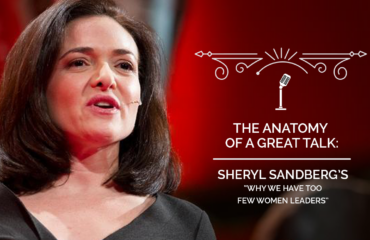In Robert Waldinger’s talk, “What Makes a Good Life: Lessons from the Longest Study on Happiness,” he shows us how even a short talk can be effective.
A while back, I introduced you to the FRAMEWORK that I created, which my clients use to create their Talks. It breaks down the presentation into different key elements that contribute to an overall great talk. This is NOT A FORMULA – nor a cookie cutter, step-by-step process. It’s a simple framework– the box which holds the sand– so you can create your unique, authentic talk!

INTRODUCE YOUR IDEA
In order to introduce the idea, he starts with the context from which the idea comes from. He begins to tell us about a study that has followed men from the Boston area for 75 years, the longest study of its kind.
Minute 5:51 “The clearest message that we get from this 75-year study is this: Good relationships keep us happier and healthier. Period.”
INTRODUCE YOURSELF
Waldinger keeps information about himself sparse, as he is focused on revealing the overarching themes of the study’s findings, but he is able to sneak in his qualification at the beginning of his talk.
MINUTE 02:25 “About 60 of our original 724 men are still alive, still participating in the study, most of them in their 90s. And we are now beginning to study the more than 2,000 children of these men. And I’m the fourth director of the study.”
PRESENT THE EVIDENCE/DATA
MINUTE 06:23 “We’ve learned three big lessons about relationships. The first is that social connections are really good for us and that loneliness kills. It turns out that people who are more socially connected to family, to friends, to community, are happier, they’re physically healthier, and they live longer than people who are less well connected. And the experience of loneliness turns out to be toxic. People who are more isolated than they want to be from others find that they are less happy, their health declines earlier in midlife, their brain functioning declines sooner and they live shorter lives than people who are not lonely. And the sad fact is that at any given time, more than one in five Americans will report that they’re lonely. “
MINUTE 07:19 “And we know that you can be lonely in a crowd and you can be lonely in a marriage, so the second big lesson that we learned is that it’s not just the number of friends you have, and it’s not whether or not you’re in a committed relationship, but it’s the quality of your close relationships that matter. It turns out that living in the midst of conflict is really bad for our health. High-conflict marriages, for example, without much affection, turn out to be very bad for our health, perhaps worse than getting divorced. And living in the midst of good, warm relationships is protective.”
MINUTE 09:04 “And the third big lesson that we learned about relationships and our health is that good relationships don’t just protect our bodies, they protect our brains. It turns out that being in a securely attached relationship to another person in your 80s is protective, that the people who are in relationships where they really feel they can count on the other person in times of need, those people’s memories stay sharper longer. And the people in relationships where they feel they really can’t count on the other one, those are the people who experience earlier memory decline. And those good relationships, they don’t have to be smooth all the time. Some of our octogenarian couples could bicker with each other day in and day out, but as long as they felt that they could really count on the other when the going got tough, those arguments didn’t take a toll on their memories.”
REMIND THE AUDIENCE OF YOUR IDEA
Some speakers choose a lengthier ways to remind their audience of their idea, but I love how he goes directly to the point after presenting the data findings.
MINUTE 10:01 “So this message, that good, close relationships are good for our health and well-being, this is wisdom that’s as old as the hills.”
REVEAL THE NEW REALITY
This simple summation is actually pretty moving. It is a short sentence but packs quite the punch.
MINUTE 12:34 “The good life is built with good relationships.”
INVITE YOUR AUDIENCE TO TAKE ACTION
At the end of his talk, Waldinger gives a simple summation and encourages his audience to take specific actions, including examples, on how to live a longer, happier life.
MINUTE 11:21“So what about you? Let’s say you’re 25, or you’re 40, or you’re 60. What might leaning into relationships even look like?”
MINUTE 11:31“Well, the possibilities are practically endless. It might be something as simple as replacing screen time with people time or livening up a stale relationship by doing something new together, long walks or date nights, or reaching out to that family member who you haven’t spoken to in years, because those all-too-common family feuds take a terrible toll on the people who hold the grudges.”
Healthy strong relationships are at the core of happiness, according to Robert Waldginer and the premise is simple. Intentionally seek to connect and engage with the people in your life from an honest, compassionate and empathic place. And don’t ever forget the first and foremost relationship YOU must have is with yourself first!
In Clarity,

Dolores Signature in green
PS: I hold workshops 3 times a year. These are intimate, get work done events where we come together to move forward with our message and our business. Interested in coming? CHECK OUT DATES






